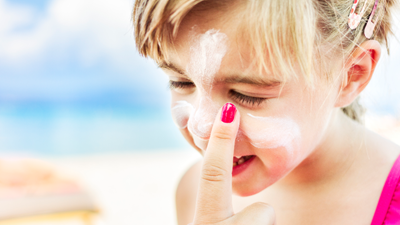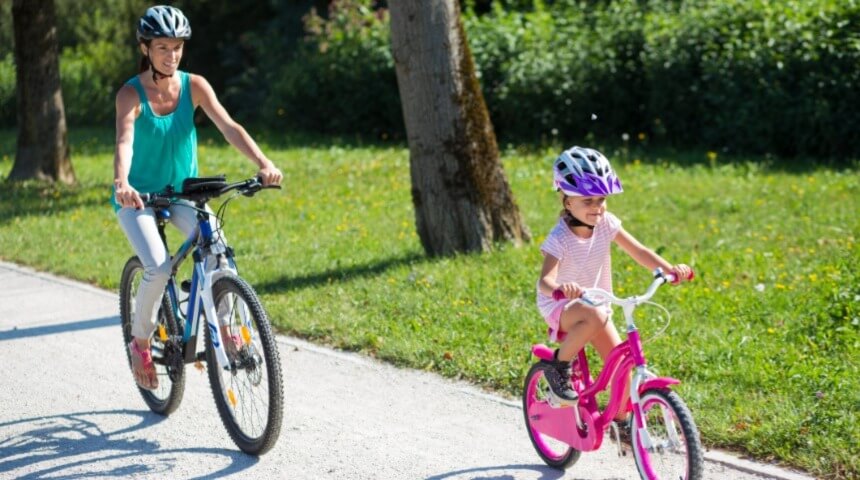This article was written in conjunction with Robert Hedrick, MD, pediatric medical resident at Orlando Health Arnold Palmer Hospital for Children.
Even as kids head back to school, don’t forget about their sun protection! Whether they spend time outside during recess, walking home from school, or playing in the pool on weekends, it’s important to remember the dangers that can come with prolonged sun exposure, including sunburn and an increased risk for skin cancer. Fortunately, there are several ways to prevent sunburn in children so they can continue to enjoy the fun without having to stay indoors!
The American Academy of Pediatrics (AAP) recently published safety tips and reminders that every parent should know.
Sun Safety for Infants Less Than Six Months Old
It’s important to keep babies under six months old out of direct sunlight. The main way to help prevent sunburn in these children is with proper shade and clothing. When outside, make sure the baby is under shade. Whether it’s a beach umbrella or a tree at the park, shade can definitely help prevent sunburn. In addition, it is important to dress the baby in lightweight clothing that covers the arms and legs. It is okay to apply small amounts of sunscreen to the baby as well. Just make sure that it is sunscreen with a sun protection factor (SPF) of at least 15.
Sun Safety for Children Older Than Six Months of Age
With this age group, it is also very important to wear clothes that will cover up sun-exposed areas. Don’t forget hats and sunglasses! Keep in mind that the sun’s peak intensity is between 10 a.m. and 4 p.m., so it’s best to limit sun exposure during this time. If you do venture outside during this time period, sunscreen is absolutely necessary.
You will want to make sure that the sunscreen used says “broad spectrum.” This means that it blocks both types of ultraviolet rays (UVA and UVB) and has an SPF of at least 15. While sunscreens with an SPF of 50 are available, studies are limited and do not suggest an additional benefit. Most children only need an SPF of 15 or 30.
While any sunscreen will work, it’s recommended that you use a sunscreen with “zinc oxide” or “titanium dioxide” for the face. This type of sunscreen also can be used if sunscreen irritates the child’s skin. Remember that it takes time for sunscreen to work, so apply it 15 to 30 minutes before going outdoors and re-apply every two hours. It’s always better to use too much sunscreen than not enough. If a rash develops after applying sunscreen, notify your doctor.
Sunburn – It Happened, Now What?
Even with sunscreen and protective clothing, your child may get a sunburn. If the child is less than one year old, contact your doctor for advice. Otherwise, notify the doctor if there is blistering, pain or fever. However, most instances can be managed at home with supportive care.
Children with a sunburn are at an increased risk for dehydration, so be sure to give water or 100 percent fruit juice to replace lost fluids. For pain, apply cool water to the areas for relief. Over-the-counter pain medications (acetaminophen and ibuprofen) also should be used. Remember, do not use ibuprofen if the child is less than 6 months old. Finally, make sure to keep the child out of the sun until the burn has healed.
Outdoor activities are a great way for kids to be active and have fun. But protecting their skin from sun damage is critical. Sunburn can be very painful and unpleasant and can cause permanent skin damage that increases the risk for skin cancer. With the appropriate protection — clothing, sunscreen, shade — children should be able to enjoy the outdoors without worry!
Are You Interested in Learning More?
Sign up for our e-newsletter for more tips and best practices from pediatricians.
Sign Up Here










